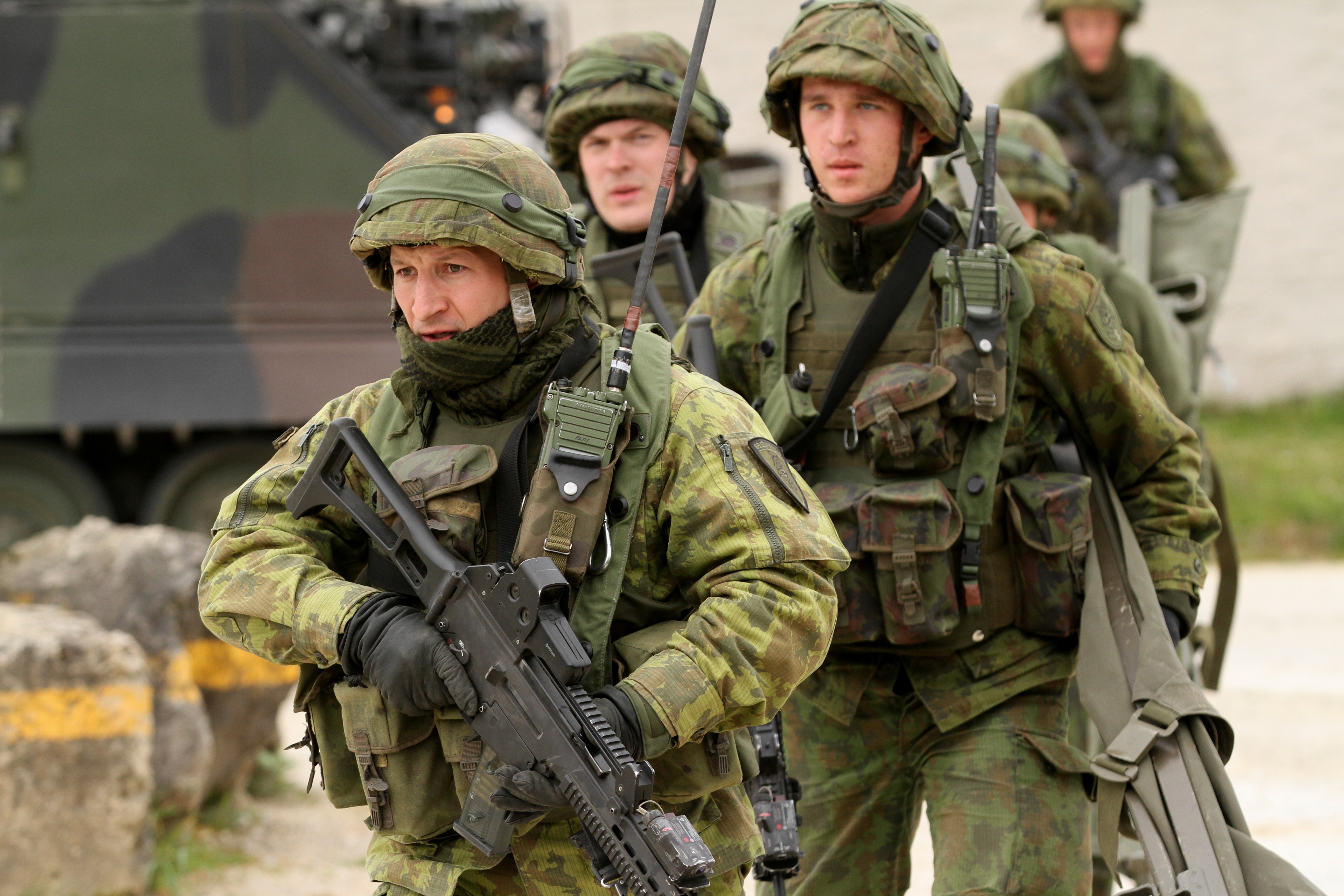“There will be no peace in Europe if the States rebuild themselves on the basis of national sovereignty. The countries of Europe are not strong enough individually to be able to guarantee prosperity and social development for their peoples.”
This vision of the European project as an engine for peace by Jean Monnet after Europe’s devastation during the Second World War is at the heart of the economic and political union that now spans 500 million people and 28 member states. While the nuts and bolts of integration in the early days were primarily economic, its goals were political from the start; economic interdependence was the insurance policy that would guarantee that Europe’s countries would never go to war again.
While NATO emerged in 1949 specifically as a military defense alliance, the EU’s predecessor – the European Economic Community – had a broader approach towards achieving the same goal of safeguarding freedom and security. Rather than focusing on capacity building specifically in the military and defense sectors, enhanced economic cooperation across the board, and, eventually policy cooperation in everything from environmental standards to border controls to fisheries to tax regulation, was the EEC’s recipe for stability.
Today, however, the EU is suffering a crisis of legitimacy. The perception of a democratic deficit at the heart of the Union’s institutions, compounded by its failure to find a common solution to the refugee crisis and its sluggish recovery from the 2008 financial crisis have led to growing Euroscepticism in its member states, both on the political right and the political left. Britain’s vote to leave the Union on July 23 came as huge blow, plunging the future of the EU into a state of uncertainty.
A study published by the Pew Research Center in June found that Euroscepticism is on the rise across Europe. The number of people with an unfavourable view of the EU is as high as 71% in Greece and 61% in France. Curiously, while political leaders in Eastern Europe have been among the EU’s most vocal critics – think Viktor Orban and Andrzej Duda slamming the EU as weak and undemocratic – Hungarian and Polish citizens held the most favourable views of the EU according to the Pew study, at 72% and 61%, respectively.
The same study revealed that the EU’s poor handling of the refugee crisis is a major contributor to people’s disillusionment with the EU. In the absence of an effective, coordinated, EU-wide refugee strategy, many member states have chosen to act unilaterally to close their borders throughout the crisis. This has exacerbated tensions with neighbouring states who fear an influx of refugees into their own countries. The EU’s proposed quota system, which would redistribute refugees according to its members’ size and wealth, has been met with open defiance by the Visegrad Group – comprised of the Czech Republic, Poland, Hungary, and Slovakia – and other Eastern European countries. In the Pew study, 72% of Hungarians polled were unhappy with the EU’s handling of the refugee crisis, as were 71% of Poles, 88% of Swedes, and an staggering 94% of Greeks. The country with the most positive response is the Netherlands, but even there 63% disapprove of the EU’s handling of the refugee crisis.
The latest Eurobarometer study published this spring reinforces the results of the Pew Research Center. When respondents were asked, “does my voice count in the European Union?”, only 4 out of 10 people surveyed in the 28 member states said they agreed. In Greece, 83% of people do not think their voices count, as do 64% in Estonia, 69% in Latvia, 74% in the Czech Republic, and 60% in Spain. At the same time, when asking citizens about their main concerns on the European level, immigration came out as the number one issue for the third time in a row. A positive sign, however, is that the number of respondents ranking it as their top concern is falling, with 10% fewer people ranking it as such than in the autumn 2015 poll.
When considering the precarious security situation in Europe, it is more important than ever that, in addition to countering the threat of a revisionist Russia, terrorism, and war in the EU’s southeastern periphery, a critical eye be turned to the health of the EU itself. “The EU needs to convey an openly self-critical message that its rules are about protecting people, and that in today’s times of rapid change they must urgently be re-examined,” wrote Giles Merritt in the last version of Europe’s World published in July.
Ultimately, the EU is crucial to Europe’s long-term peace, stability, and security. However, faced with multiple crises that threaten its economic and political viability, the EU is in dire need of reform and revitalization. To survive and thrive, it must respond to the concerns of those who have become angry and disillusioned with the European project, and find a way to convince its members that collective decision-making is needed to solve problems that, after all, are shared by every one of its members.
Photo: British National Front March in Yorkshire (1970), by White Flight via Wikimedia Commons. Licensed under CC BY 3.0.
Disclaimer: Any views or opinions expressed in articles are solely those of the authors and do not necessarily represent the views of the NATO Association of Canada.



